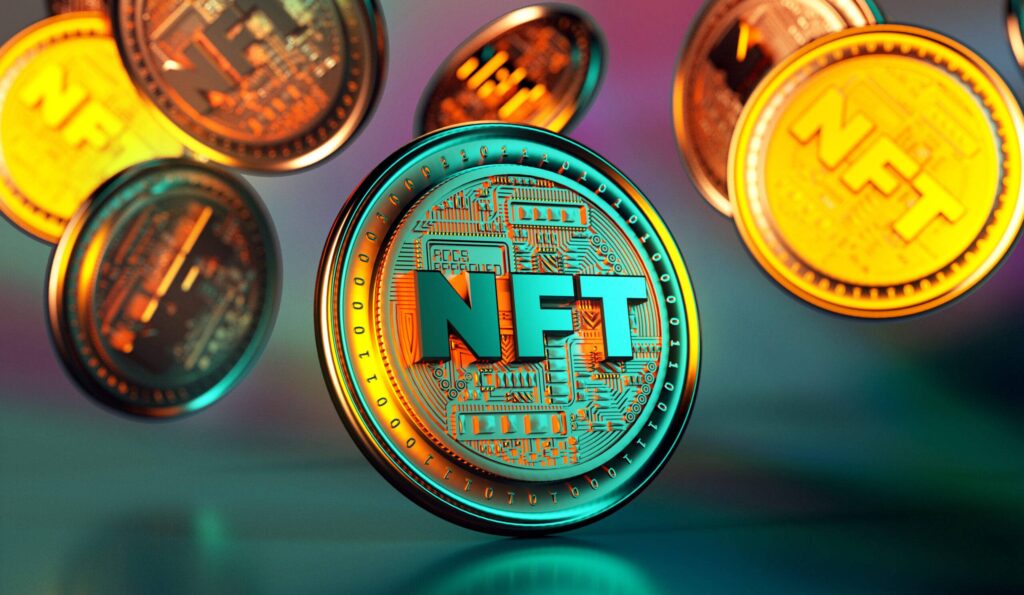Blockchain technology has progressed since Bitcoin in 2009. However,Its applications have moved beyond cryptocurrency support to banking, healthcare, supply chain management, and governance. Blockchain will transform these industries and more by 2025, solving security, transparency, and efficiency challenges. As Blockchain Technology Transforming advances, a new era could affect the world.
Future of Decentralized Finance (DeFi) by 2025
Decentralized finance (DeFi) is projected to thrive in 2025 thanks to blockchain technology. Blockchain’s decentralized, transparent nature has developed the DeFi ecosystem in recent years, giving alternatives to traditional financial services. DEXs, loan protocols, and stablecoins are merely the start of a greater movement.DeFi will likely become commonplace by 2025, offering consumers and companies.
Faster, cheaper, and more secure financial services without banks. Smart contracts, which automate many financial transactions and reduce the risk of human mistake and fraud, will be crucial to this growth.DeFi will help create more inclusive financial ecosystems where underserved or underbanked people can use services.However, Financial democratization could boost global growth, especially in emerging markets.
Blockchain in Supply Chains by 2025
Blockchain will transform supply networks in 2025, making them more transparent, efficient, and accountable. Businesses must assure ethical sourcing, sustainable production, and safe delivery as global supply chains become more complex.Blockchain allows end-to-end product traceability. A blockchain-based system may track a product from raw material extraction to delivery. Transparency helps.

Companies meet environmental and ethical requirements and develops consumer trust. The ability to check product authenticity and sustainability will help consumers make better decisions.Blockchain can automate processes and eliminate intermediaries, reducing inefficiencies, costs, and transaction times. Many industries, from agriculture to electronics, will use blockchain by 2025 to improve supply chains and reduce fraud, counterfeiting, and delays.
Blockchain’s Impact on Healthcare by 2025
Healthcare will benefit from blockchain technology by 2025. The fragmentation of patient data across institutions makes care coordination and security risky for healthcare systems. Blockchain can unify, safeguard, and transparently store patient records.Blockchain would let patients give healthcare providers access to personal medical data. The communication of medical information between doctors would be.
Streamlined, eliminating administrative time and enabling more effective, individualized care. Blockchain’s strong security characteristics make it ideal for protecting sensitive health data from cyberattacks, which are growing more common.Blockchain could potentially help fight counterfeit pharmaceuticals in the pharmaceutical industry. Blockchain verifies drug authenticity from maker to user, preventing harmful counterfeits.
Blockchain in Government by 2025
Globally, governments are starting to investigate blockchain technology as a way to enhance public sector operations. Blockchain may become essential to government operations by 2025, increasing openness, cutting red tape, and boosting service delivery.Voting system applications are among the most promising. Voter manipulation and election fraud issues may be allayed by blockchain-based voting, which offers a transparent, safe, and unchangeable voting and counting platform. In addition to boosting voter turnout.
Blockchain technology would make voting easier for everyone, especially in harder-to-reach places.Transparent, tamper-proof records made possible by blockchain technology have the potential to revolutionize public records administration by lowering administrative inefficiencies and thwarting corruption. However,Blockchain technology might help governments handle everything from social security to land ownership, increasing accountability and lowering fraud.
NFTs and Digital Ownership by 2025
Despite recent instability in the market, non-fungible tokens (NFTs) are predicted to play a major role in digital ownership and content creation by 2025. Digital assets, such as music, films, artwork, or even virtual real estate, can be proven to be owned by creators using NFTs.However, NFTs may play a crucial role in digital economies by 2025, giving artists and other producers new avenues for.

Making money off of their creations.NFTs may find useful uses outside of the creative industries in fields like virtual reality, gaming, and intellectual property protection. However, For example, NFTs driven by blockchain technology may be used to validate the ownership of virtual commodities and goods in online spaces, opening up new commercial opportunities for the entertainment and gaming sectors.
Blockchain Adoption Challenges by 2025
Notwithstanding the intriguing possibilities of Blockchain Technology Transforming there will be obstacles in the way of its broad adoption by 2025. Before blockchain to reach its full potential, issues including scalability. Energy consumption, regulatory frameworks, and integration with older systems must be resolved.The inability of current blockchain networks to perform a large number of transactions per second. Makes scalability in particular a major challenge.However, Ongoing developments
In blockchain technology and protocols, such as layer-2 solutions, proof-of-stake. And sharding, should, nevertheless, mitigate some of these problems.Uncertainty in regulations is still a major obstacle. The proliferation of blockchain applications will require governments to develop clear, cogent policies that safeguard businesses and consumers while encouraging innovation. In order to avoid illegal activities like fraud and money laundering, these regulations will probably need to strike a compromise between the decentralized nature of blockchain technology and regulation.
Summary
By 2025, blockchain technology has a bright future ahead of it, with the potential. To revolutionize every aspect of society and the economy. However, Blockchain is positioned to bring about substantial change in a variety of fields. Including governance, supply chains, DeFi, and healthcare. It will address many of the security issues and inefficiencies that have beset.
Conventional systems. However, overcoming legislative and Blockchain Technology Transforming obstacles will be necessary for its continued success. Blockchain has the potential to be one of the most significant technological. Advancements of the decade, opening the door to a more open, safe, and decentralized. Society, provided these obstacles can be overcome.


